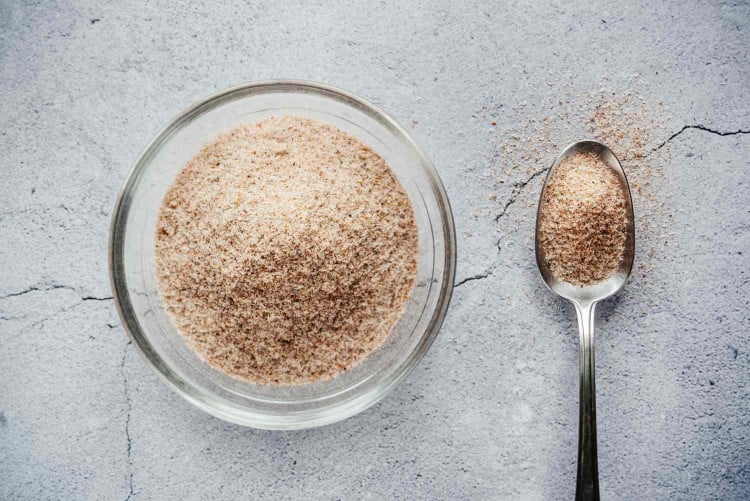
- Evidence is building that a healthy, diverse gut microbiome can benefit health.
- Studies have shown that people and animals with obesity often have a less diverse microbiome than those of a healthy weight.
- Now, research from China suggests that intermittent energy restriction (IER) — which involves eating normally on some days and eating a very restricted diet, or fasting, on others — not only helps people lose weight but may also alter their microbiome.
- This small, observational study shows only an association between weight loss and microbiome changes, rather than any causative effects.
Recently, research has found increasing evidence of the potential effects of the
The microbiome consists of bacteria, archaea, viruses and eukaryotic microbes that live in and on our bodies. A healthy adult will house around 1000 different species of bacteria, the majority of which are in the gut.
In most people, the
Now, a small study from China has suggested that intermittent energy restriction (IER), as well as helping people with obesity to lose weight, may alter their gut microbiota.
The study is published in Frontiers in Cellular and Infection Microbiology.
The types of gut bacteria affected by weight loss
As part of the study, the researchers recruited 25 people with a body mass index (BMI) of between 28kg/m2 (classed as overweight) and 45kg/m2 (classed as severely obese). None of the participants had any other uncontrolled health conditions.
To start, they ate a regular diet for four days, and the researchers recorded the energy content of this as their baseline daily intake. For the rest of the study, the researchers interspersed the days of regular baseline energy intake with days where the participants had severely restricted energy intake formulated by a clinical dietitian.
The researchers collected the participants’ blood and fecal samples at the beginning, midpoint, and end of phases II (highly-controlled fasting) and phase III (less-controlled fasting) during the two months the study was conducted. They also recorded their body weight, waist circumference, body fat, systolic blood pressure, and diastolic blood pressure at each time point.
During the study, participants lost, on average, 7.8% of their body weight. And at the end of phase II, their gut microbial diversity had increased from the baseline. However, at the end of phase III, there was no significant difference from the start of the study.
There were also some changes in the species making up the gut microbiota, with a decrease in Escherichia coli and an increase in Faecalibacterium prausnitzii, Parabacteroides distasonis, and Bacteroides uniforms.
How gut bacteria changes affect health
“F. prausnitzii is one of the most abundant bacteria in the gut and is generally associated with good health and immunity. […] P. distasonis is associated with breaking down carbohydrates and producing useful metabolites. This bacteria is known to thrive in a diet rich in fiber. B. uniformis is known to have anti-inflammatory properties and plays a role in processing complex sugars in our diet.”
“The alteration in gut microbe abundance induced by the diet is potentially beneficial, as these changes could help modulate metabolic and immune processes, though additional research is needed to fully understand the long-term effects,” she added.
The researchers noted that these changes were associated with significant reductions in the activity of brain regions implicated in the regulation of appetite and addiction. However, they do not explain what effect these changes are likely to have on appetite.
More evidence of gut-brain links
In a press release, co-author Dr. Xiaoning Wang from the Institute of Geriatrics of the PLA General Hospital stated:
“The gut microbiome is thought to communicate with the brain in a complex, two-directional way. The microbiome produces neurotransmitters and neurotoxins, which access the brain through nerves and the blood circulation. In return, the brain controls eating behavior, while nutrients from our diet change the composition of the gut microbiome.”
As an observational study, this research cannot show a causal relationship between IER, weight loss, and the gut microbiome, but it does provide more evidence of a link. The researchers suggest that long-term dietary intervention should be used to maintain weight loss and further clarify the relationship between the gut microbiome and the brain, and Costa agreed.
“Future research should aim to address the exact process through which the gut microbiome interacts with the brain in obese individuals, specifically during weight loss, including the identification of crucial gut microbiome components and brain regions that contribute to successful weight loss and maintenance of a healthy weight,” she told MNT.
She also gave general advice about how to look after your microbiome:
“The gut microbiome is a complex ecosystem, and its relationship with obesity is not fully understood. It’s thought that balance and diversity of gut bacteria may be more important than the presence or absence of specific species.”
How to improve the gut microbiome“A plant-rich diet and an active, healthy lifestyle can help promote an optimal gut environment and healthy microbiome.”
— Kelsey Costa





:max_bytes(150000):strip_icc()/Health-GettyImages-1244575423-991d1ebe9942424f9bb35b650fb5ff11.jpg)


